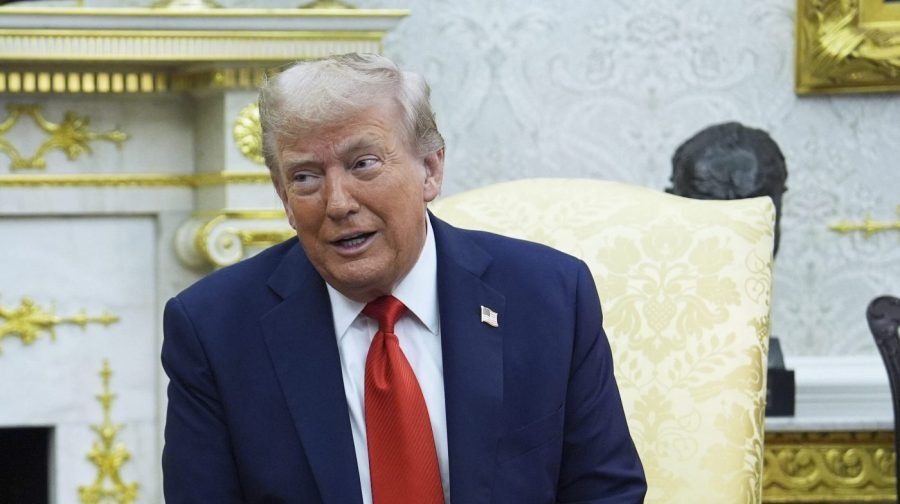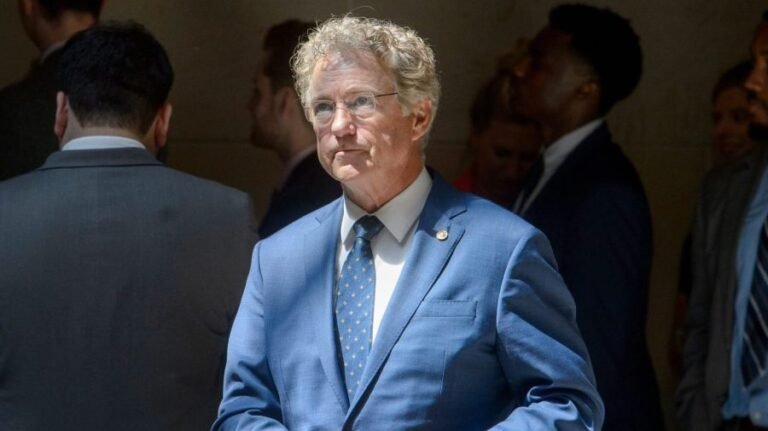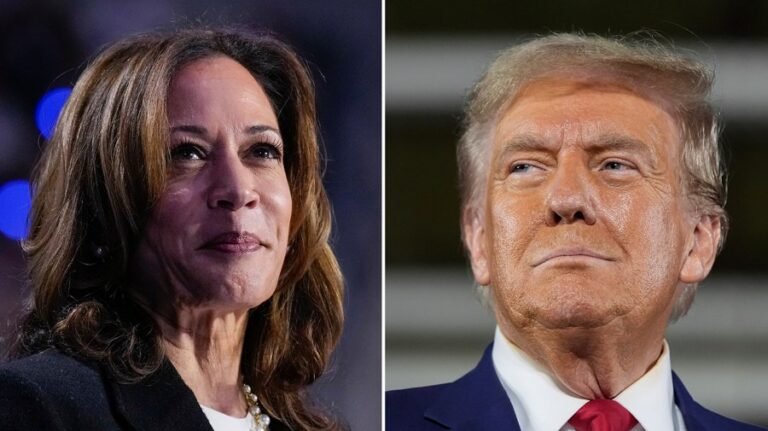
President Trump’s top political and messaging lieutenants are telling House Republicans to refer to his signature tax cut and spending legislation as the “working families tax cut” rather than the “One Big Beautiful Bill Act” ahead of the midterms.
Press secretary Karoline Leavitt, Trump 2024 political director James Blair and Trump 2024 chief pollster Tony Fabrizio briefed members and staff on the messaging strategy Wednesday morning.
“Working families tax cut, that’s what we’re calling it,” Rep. Jake Ellzey (R-Texas) said after the briefing.
He said that Republicans are moving away from using “one big, beautiful bill” because it doesn’t say enough about the legislation, praising the work of Trump’s team.
“One big, beautiful bill doesn’t really say anything about anything,” he said. “That’s well-tested,” adding that Fabrizio and the other Trump aides are “the best in the business.”
The push comes as public polling shows that the “One Big Beautiful Bill Act” is underwater in public opinion, which Republicans are blaming on Democrats misrepresenting the bill.
“I went in a little skeptical and I walked away going, they’re dadgum right. And they know their jobs. Fabrizio knows how to message and he knows what the polls are saying,” Ellzey said. “If it’s data driven, it’s the truth.”
During the congressional recess, the administration started referring to the legislation as Trump’s “working families tax cut” instead of the “big, beautiful bill.”
Trump in August encourage a rebranding, saying that the “big, beautiful” bill is “not good for explaining to people what it’s all about” and declared he wouldn’t use that name. Vice President Vance made four stops this summer to sell the bill and last week, while giving remarks in Wisconsin, he never referred to it as the “big, beautiful bill.”
Members after the briefing didn’t say they were told explicitly to no longer call the law the “big, beautiful bill” but appeared all on the same page about messaging the bill differently.
The rebrand was quickly on display in a weekly House Republican leadership press conference. Speaker Mike Johnson (R-La.) said Republicans over the August break “were talking about the One Big Beautiful Bill, which has also become known as the Working Families Tax Cut Act, because that’s what it principally represents.”
Johnson, though, insisted there was not a “not a rebranding,” and they want members to “just take the time to explain what’s in it.”
“Because in almost every scenario, literally, like 99% of the time when you explain what’s in it, light bulbs go off and people start standing and applauding,” Johnson said.
House GOP Conference chair Lisa McClain (R-Mich.) — who is tasked with directing messaging for Republicans, Rep. David Taylor (R-Ohio), and House Majority Whip Tom Emmer (R-Minn.) also used the new moniker in the leadership press conference.
Rep. Eric Burlison (R-Mo.) said that he thinks Republicans “missed an opportunity to call it like the working families tax cut bill,” and that Republicans should have chosen a name like Democrats’ “Inflation Reduction Act.”
Rep. Keith Self (R-Texas) said “the working families tax cut” is “the term for the action that we took.”
Republicans referred to the briefing on Wednesday as a way to get on the same page about what the legislation does, in an effort to combat what Democrats said about the bill while in their districts over the summer.
“The polling showed that people oppose it, that’s because they’ve been so misinformed by Democrats fear mongering,” said Rep. Nicole Malliotakis (R-N.Y.). “The reality is, when they do their taxes next year, they’re going to see that they’re saving money, particularly if they are working family who’s in the low to middle income brackets, they’re senior citizen on Social Security, they’re tipped worker— they’re going to they’re going to see savings, and they’re going to see a lot of the things that the Democrats said about Medicaid are simply not true.”
House Republicans are under pressure to sell Trump’s signature legislation to voters, with the rebrand being pushed as they return to Washington from recess.
The concerted effort to rebrand the bill has aligned with the administration focusing on specific parts of it that plays well with voters, like no taxes on overtime, no taxes on tips and funding for law enforcement to crack down on drug cartels and deportation efforts.
Democrats, meanwhile, have viewed the legislation as a political gift that they can sell to the public as a threat to working-class voters. Members during town halls with constituents pointed to its cuts to Medicaid and food assistance programs, as well as significant tax breaks for the ultrawealthy to voters.
The House Democrats’ campaign arm in July launched national digital ads targeting 35 battleground Republicans who voted for the bill despite reservations over Medicaid cuts.
In a statement on Wednesday, the Democratic Congressional Campaign Committee called the measure a “toxic failure.”
“The so-called rebrand of the Big, Ugly Law is an admission that the GOP’s signature legislative ‘achievement’ is a toxic failure. Only Republicans seem surprised that ripping away health care and gutting rural hospitals just to hand billionaires a massive tax break is completely out of step with what the American people want,” DCCC spokesman Justin Chermol said in a statement.
Democrats have also leaned on the Congressional Budget Office’s (CBO) recent analysis that showed Trump’s bill will make the poorest Americans even poorer, while benefiting the highest earners.
The CBO report, which was done at the request of Democrats, found that the top 10 percent of earners in the country will see an average boost of $13,600 per year over the next decade as a direct result of provisions in the law, while the bottom 10 percent will see an average annual decrease of $1,200.
Vance last month framed the Republicans’ response to questions over the analysis, saying that the CBO puts out reporters that sometimes “are absolutely atrocious.”
“The most important thing for people who are living at the bottom of the income ladder is that they not pay taxes on their income sources,” the vice president said while in Peachtree City, Ga. “So, if you’re working hard and you’re working overtime, you’re going to get a big fat tax cut. If you’re working at a restaurant or some other business where you’re earning your wages primarily through tips, you’re going to get a big fat tax cut.”


